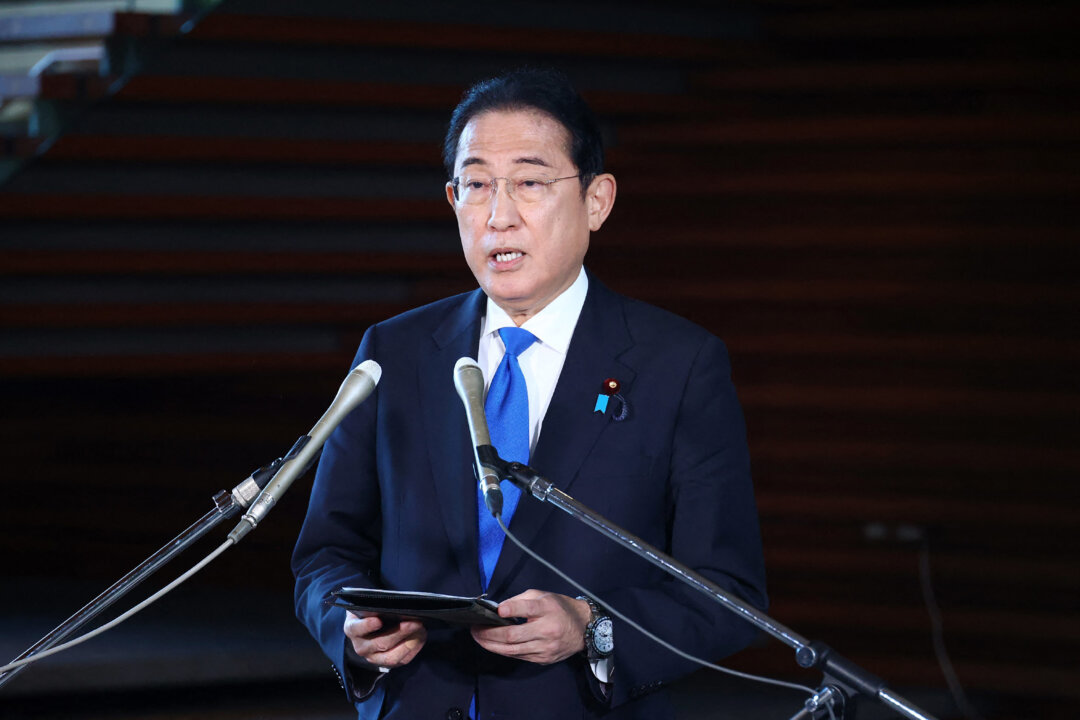Both countries reached a deal over the release of wastewater from the destroyed Fukushima Daiichi power plant into the ocean.
China has said it will reconsider its ban on seafood imported from Japan as the two countries have reached an agreement over the discharge of treated wastewater from the crippled Fukushima Daiichi nuclear power plant into the ocean.
According to the new agreement announced on Sept. 20, Japan would expand its long-term international monitoring measures under the International Atomic Energy Agency (IAEA) framework and ensure that all stakeholder countries, including China, can conduct independent sampling and interlaboratory comparisons.
“We have been discussing with China on an administrative level, and by today, we have reached a certain level of mutual understanding,” Japanese Prime Minister Fumio Kishida told reporters on Sept. 20.
“Japan informed them that we are ready to do additional monitoring of the ALPS-treated water, while China will start to prepare to lift the import ban on Japanese seafood. If those have passed the standards, China will steadily resume the import.”
The ALPS refers to the Advanced Liquid Processing System, a filtering system designed to remove all harmful substances except tritium, a hydrogen isotope that the U.S. Food and Drug Administration says presents low risks to human health.
Kishida said the safety of the Japanese water discharges has been proven and that it will continue to demand China’s immediate lifting of the ban.
China expanded its existing seafood ban to cover all aquatic products imported from Japan in August 2023, shortly after Japan began pumping more than a million metric tons of treated wastewater into the Pacific Ocean, a process expected to span a decade.
China’s foreign ministry strongly condemned Japan’s decision to discharge the wastewater into the ocean, and its customs agency said the wastewater poses a risk of “radioactive contamination“ to food safety, although no scientific data was provided to support this assertion.
The Japanese government has maintained that the treated wastewater is safe, and the IAEA, the United Nation’s atomic watchdog, agreed.
In a July 2023 report submitted to the Japanese government, the agency concluded that the treated wastewater would have a “negligible radiological impact” on people and the environment. The IAEA gave a green light to Japan’s discharge plan, and in contrast to China, the European Union decided to lift restrictions on Japanese seafood imports.
Beijing also confirmed its deal with Tokyo on Sept. 20. Chinese foreign ministry spokesperson Mao Ning emphasized that “reaching the agreement does not mean that China will immediately resume imports of all Japanese aquatic products.”
“We will hold technical consultations with Japan and, after China’s demands are fully addressed, gradually resume imports of Japanese aquatic products that meet the regulation requirements and standards,” the spokesperson said at a daily briefing in Beijing.
Beijing’s sweeping ban, accompanied by a surge in anti-Japaness sentiment fueled by state-backed propaganda, has drawn criticism from international communities and fishing industries. Analysts suggest the seafood ban may be driven by political maneuvering instead of scientific evidence.
Japanese officials and some scientists have noted that China’s nuclear power plants emit more tritium than Japan’s Fukushima. For example, the Qinshan power plant in eastern China released liquid effluents containing 203 trillion becquerels of tritium last year, approximately nine times the maximum annual discharge target of 22 trillion becquerels set for Fukushima, according to Japan’s foreign ministry, citing official data from China Nuclear Energy Association.
“The release of currently filtered cooling water containing tritium atoms from the Fukushima plant will not cause physically detrimental effects,” David Krofcheck, an expert on physics at the University of Auckland, said in a statement.
“The water release is designed to have seven times less tritium per liter than is recommended for drinking water by the World Health Organization. Much more tritium has been released by normally operating nuclear power plants into the North Pacific Ocean since those plants in China, South Korea, and Taiwan, were first located on coastal sites.”

Two days before the announcement of the agreement, a 10-year-old Japanese boy was fatally stabbed on his way to school in China. The incident, which is the third stabbing committed against Japanese nationals in China this year, adds to the concerns among Japanese expats about their safety in China and threatens to complicate already strained bilateral ties.
Beijing denied that the timing of the announcement was related to the incident.
“The content of the agreement and the release time were decided by China and Japan after intensive consultation,” the Chinese foreign ministry spokesperson told reporters in Beijing. “There is no connection between the two matters.”
In response to the death of the schoolboy in the southern Chinese city of Shenzhen, Japanese Deputy Minister of Foreign Affairs Hiroshi Hiroshi arrived in Beijing on Sept. 22 to meet with Chinese officials and their nationals in Beijing.
The Associated Press contributed to this report.

